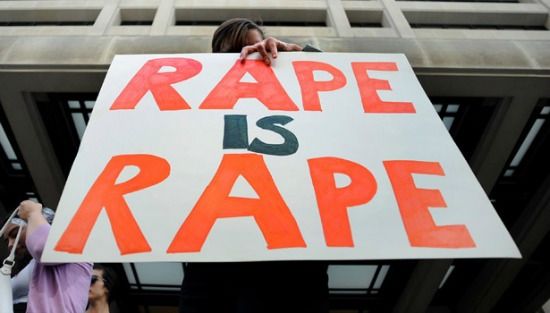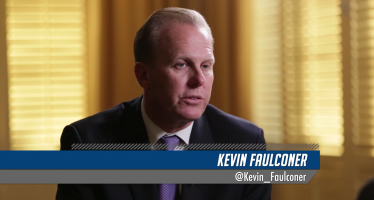New laws require more storing, reporting of rape kits – but not more testing
 Gov. Jerry Brown’s signing of three bills relating to rape kits – the physical evidence gathered from individuals in lengthy examinations after reports of sexual – was hailed by women’s rights groups as a major step forward in bringing justice to rape victims.
Gov. Jerry Brown’s signing of three bills relating to rape kits – the physical evidence gathered from individuals in lengthy examinations after reports of sexual – was hailed by women’s rights groups as a major step forward in bringing justice to rape victims.
But will the laws actually lead law enforcement agencies to routinely test nearly every rape kit, as advocates want? That’s very much in doubt, given the long history of police chiefs’ and sheriffs’ resistance to the idea.
The three new laws do not require more testing.
AB41, by Assemblyman David Chiu, D-San Francisco, requires law enforcement agencies to regularly report how many untested kits they have to a state database.
AB1312, by Lorena Gonzalez Fletcher, D-San Diego, and Assemblyman Marc Berman, D-Palo Alto, requires law enforcement agencies to preserve untested rape kits for at least 20 years.
AB280, by Assemblyman Evan Low, D-Campbell, allows individual state income tax filers to make a donation to help police agencies pay for testing rape kits.
The rape kit backlog – estimated at 13,500 currently in California and at 400,000 in the U.S. in 2015 – has been labeled a national disgrace by sex assault support groups and by such journalists as New York Times columnist Nicholas Kristof. They argue that the backlog results not just because of a lack of resources – rape kit tests cost about $1,500 – but due to officers’ skepticism about rape allegations. This view is backed up by Michigan State University professor Rebecca Campbell’s research project focusing on the Detroit Police Department, which found many officers believed victims were lying or were of questionable character.
‘Cold hits’ after ending backlog solve thousands of crimes
Advocates of ending the backlog say it contributes to higher crime by leaving criminals free to plague society. They cite the success police agencies which have cleaned up their backlogs have with “cold hits” of criminals already on file in the FBI’s CODIS (Combined DNA Index System) database. “Cold hits” have helped close the files on thousands of unsolved crimes.
But police agencies say officers do a better job dealing with sexaul assault victims than they may have in the past, thanks to a focus on the issue by groups like the Police Executive Research Forum. They also argue that only testing rape kits in cases that have a chance of leading to convictions makes sense – if the alleged victim won’t testify or identify a suspect, why use limited resources to continue investigating?
In 2014, at the request of the Legislature, California State Auditor Elaine Howle weighed in on the rape-kit testing debate, doing so with an audit of three large law enforcement agencies. While her final report recommended that all rape kits generally be tested, it did not offer a definitive view of the value of such a policy.
“Even though kit analysis can aid investigations of sexual assaults, the extent to which analyzing more sexual assault evidence kits than are currently being analyzed would improve arrest and conviction rates is uncertain, and additional information is required to determine the true benefit and cost to California of such a policy change,” the audit noted.
The audit was based on how the Oakland Police Department, the Sacramento County Sheriff’s Department and the San Diego Police Department dealt with the approximately 1,900 rape kits they gathered from 2011-2013.
Of the 1,900 kits, nearly 850 had been tested, nearly 140 were at labs for tests at the time of the audit and about 910 – or 48 percent – had not been tested.
Chris Reed
Chris Reed is a regular contributor to Cal Watchdog. Reed is an editorial writer for U-T San Diego. Before joining the U-T in July 2005, he was the opinion-page columns editor and wrote the featured weekly Unspin column for The Orange County Register. Reed was on the national board of the Association of Opinion Page Editors from 2003-2005. From 2000 to 2005, Reed made more than 100 appearances as a featured news analyst on Los Angeles-area National Public Radio affiliate KPCC-FM. From 1990 to 1998, Reed was an editor, metro columnist and film critic at the Inland Valley Daily Bulletin in Ontario. Reed has a political science degree from the University of Hawaii (Hilo campus), where he edited the student newspaper, the Vulcan News, his senior year. He is on Twitter: @chrisreed99.
Related Articles
Federal judge moots CA casino oversight
In what amounted to a tart reminder to California voters that they have limited authority over sovereign Indian tribes, a
VIDEO: The effective use of police body cameras in San Diego
In a conversation with CalWatchdog.com Editor Brian Calle, San Diego Mayor Kevin Faulconer discusses law enforcement issues ranging from human
Key parts of the immigration reform bill
April 25, 2013 By John Seiler You’re probably not going to read all 844 pages of the new immigration bill




